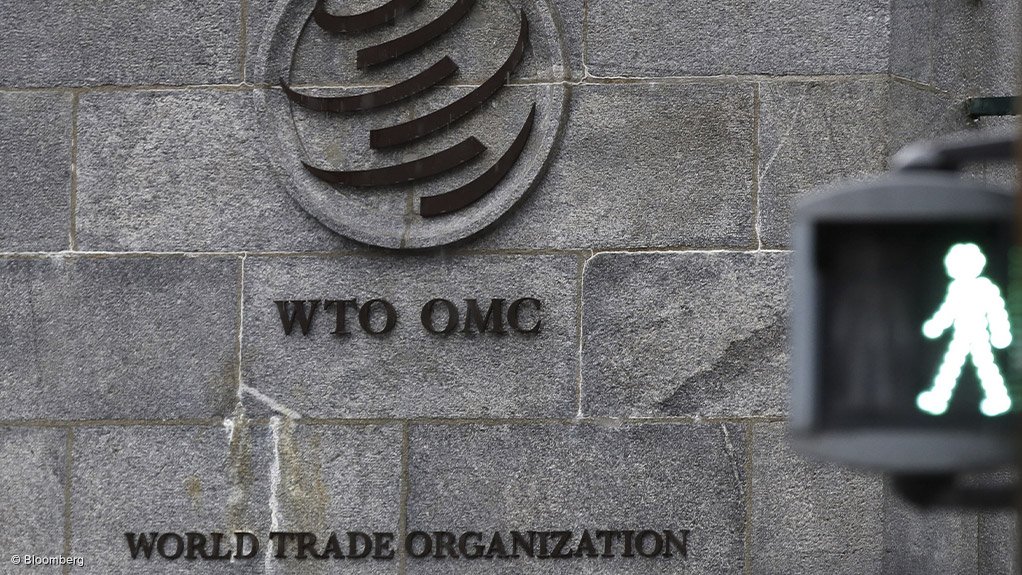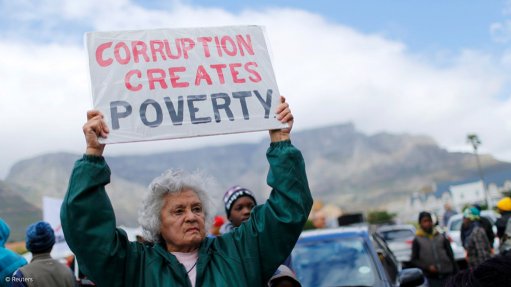South African govt, stakeholders seek further WTO support in citrus industry's battle with the EU
The South African government and industry organisations have requested that two panels be established at a meeting of the Dispute Settlement Body (DSB) of the World Trade Organisation (WTO) to examine the stringent citrus import measures being imposed on South Africa by the European Union (EU).
The local stakeholders wish to address regulations around citrus black spot (CBS) and false codling moth (FCM) as they deem these to be unscientific and discriminatory.
The measures imposed by the EU since mid-2022 require enhanced cold treatment for fruit owing to concerns over FCM, a pest commonly found in sub-Saharan Africa, and CBS, a fungal disease which leaves dark spots on fruit.
South African citrus growers spend billions of rands every year to comply with phytosanitary measures to comply with international regulations, including those of the EU that the industry considers unnecessarily restrictive.
Citrus growers have assured the WTO that South Africa already has an effective world-class risk management system in place that ensures safe citrus exports and stressed that emerging citrus growers are especially hard-hit by the EU measures.
South African stakeholders maintain that the current EU citrus import measures are not based on scientific principles, are applied in a manner that is not in accordance with the Agreement on the Application of Sanitary and Phytosanitary Measures of which the EU is a signatory, and that the EU fails to apply the measures in a uniform, impartial and reasonable manner.
The measures are proving to be more trade restrictive than required to achieve protection and there are reasonably available alternatives which are technically and economically feasible.
With South Africa exporting about 36% of its citrus production to the EU, it is testament to the importance of this market for citrus growers and the industry’s profitability. The South African citrus industry supports 140 000 farm-level jobs and thousands more in the value chain.
South Africa is the world’s second-largest exporter of citrus globally, with an expected 170-million 15 kg cartons to be exported this year.
With stakeholders requesting the establishment of two panels at the dispute meeting, it will be the first time that South Africa progresses a dispute at WTO level beyond the panel state of the established DSB process.
The request follows South Africa requesting consultations with the EU on the CBS matter in April, but this process ended without any results. On FCM, South African stakeholder-initiated consultations in July 2022, but again with no satisfactory conclusion.
To meet the phytosanitary regulations, South Africa uses an integrated field-to-shipment pest-management systems approach consisting of three measures with numerous components within these measures and a prolonged period of crop protection, which required significant investment.
This "citrus systems approach" has proved highly effective, as shown by the results of papers published and reviewed in international scientific journals.
The EU, until mid-2022, had accepted South Africa’s systems approach.
While the EU did not accept South Africa’s request for the two panels through the DSB, the set DSB procedure allows for the requested adjudication panels to be established at its next meeting in July. A DSB panel report is typically expected after nine months.
Department of Agriculture, Land Reform and Rural Development director-general Mooketsa Ramasodi has committed government’s support to acting to safeguard livelihoods in the citrus industry.
Department of Trade, Industry and Competition acting director-general Malebo Mabitje-Thompson adds that the EU’s measures on CBS and FCM are not justified or proportionate, and that the WTO process being pursued is not confrontational or aggressive. Rather, it aims to reach a scientifically true and fair resolution using available WTO mechanisms.
Article Enquiry
Email Article
Save Article
Feedback
To advertise email advertising@creamermedia.co.za or click here
Announcements
What's On
Subscribe to improve your user experience...
Option 1 (equivalent of R125 a month):
Receive a weekly copy of Creamer Media's Engineering News & Mining Weekly magazine
(print copy for those in South Africa and e-magazine for those outside of South Africa)
Receive daily email newsletters
Access to full search results
Access archive of magazine back copies
Access to Projects in Progress
Access to ONE Research Report of your choice in PDF format
Option 2 (equivalent of R375 a month):
All benefits from Option 1
PLUS
Access to Creamer Media's Research Channel Africa for ALL Research Reports, in PDF format, on various industrial and mining sectors
including Electricity; Water; Energy Transition; Hydrogen; Roads, Rail and Ports; Coal; Gold; Platinum; Battery Metals; etc.
Already a subscriber?
Forgotten your password?
Receive weekly copy of Creamer Media's Engineering News & Mining Weekly magazine (print copy for those in South Africa and e-magazine for those outside of South Africa)
➕
Recieve daily email newsletters
➕
Access to full search results
➕
Access archive of magazine back copies
➕
Access to Projects in Progress
➕
Access to ONE Research Report of your choice in PDF format
RESEARCH CHANNEL AFRICA
R4500 (equivalent of R375 a month)
SUBSCRIBEAll benefits from Option 1
➕
Access to Creamer Media's Research Channel Africa for ALL Research Reports on various industrial and mining sectors, in PDF format, including on:
Electricity
➕
Water
➕
Energy Transition
➕
Hydrogen
➕
Roads, Rail and Ports
➕
Coal
➕
Gold
➕
Platinum
➕
Battery Metals
➕
etc.
Receive all benefits from Option 1 or Option 2 delivered to numerous people at your company
➕
Multiple User names and Passwords for simultaneous log-ins
➕
Intranet integration access to all in your organisation




















